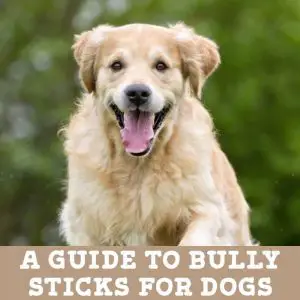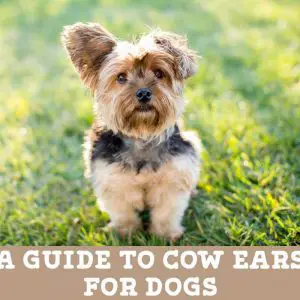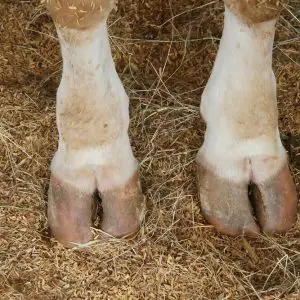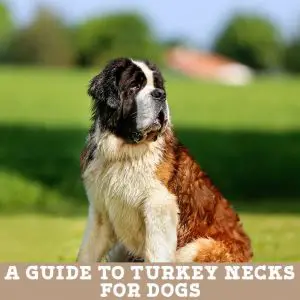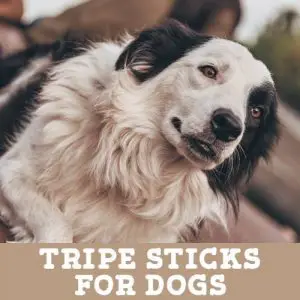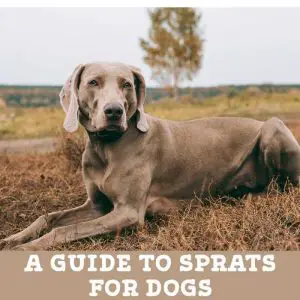Key facts
Cow Hooves are by-products that are cleaned, cooked and dried to create a chew
Some are sold plain, but others are filled with a meaty paste.
Cow Hooves are made from tough keratin, so are long-lasting but have a low nutritional value.
They technically have a high protein content, but keratin is hard to digest, so most of it is not useful for dogs.
The risks of feeding Cow Hooves include damage to the teeth, choking, and intestinal blockage.
Cow Hooves are not suitable for puppies and young dogs.
What Are Cow Hooves?
Like many natural dog chews, cow hooves are created from by-products of the meat industry. The bones are removed from the cow’s feet and then processed to create a tasty chew. Sometimes they may also be filled with a meaty paste to make them more appealing.
Provenance
Cow hooves, as the name suggests, are made from the feet of cattle. The hooves are considered a by-product, meaning that they are not a normal part of the cow to be eaten. They do have several other possible uses besides dog chews – for example, they may be used to make tallows (fats for use in food or industry), fertilizers, and even foam for fire extinguishers.
Preparation
To make a suitable chew, the hooves are removed from the rest of the foot, cleaned, cooked, and then air-dried. These hoof treats are then naturally hollow and are sometimes filled with meaty paste.
Raw Feeding Box
Cow hooves are not usually eaten raw. They do technically contain some protein, but it is in a form that is very difficult for a dog to digest, so they are not usually a significant part of a balanced diet.
Benefits of Cow Hooves for Dogs
Key benefits
Long-Lasting
Tough keratin is hard to chew
Single Protein Source
Helpful for some food sensitivities
Lower Fat
May contain less than other snacks
Long-Lasting
Cow hooves are largely made of keratin, a tough protein that provides a challenge for even an enthusiastic chewer. This makes them a long-lasting choice, but can come with some risks to dogs’ teeth, as we will see later.
Single Protein Source
As long as they are not filled with another kind of paste, cow hooves should only contain a single kind of animal protein. This may be useful for dogs who cannot tolerate certain kinds of meat in their diets.
However, depending on the manufacturing process used, there is the possibility of cross-contamination with other proteins, too. This means that dogs who are severely allergic to some meats may still have issues eating these treats, even if they are normally fine with beef.
Lower Fat
Cow hooves do have some fat in them, but this may be less than for other kinds of chews or treats. However, it can vary quite widely between different brands, so be sure to check the packaging for your dog’s own treat.
Nutritional Information for Cow Hooves
Nutrients
Protein
Cow hooves are often said to be “high in protein”, but this is quite a misleading claim. They do technically have a high protein content, but most of that protein is in the form of keratin. This tough structure is very difficult for dogs to digest, so keratin is not a very useful source of protein for dogs.
Fats
Most cow hooves do contain some fat – and if they have a meaty stuffing, then this is likely to be much higher. These fats are not particularly high-quality, from a nutrition point of view, so mostly just add calories to this treat.
Vitamins, Minerals & Compounds
Cow hooves contain very few vitamins and minerals. Those that are present are tightly hard to digest, much the same as the protein, and so are not likely to offer many benefits.
However, as long as your dog is eating a complete and balanced diet that is appropriate for their age and breed, then they will not need any extra vitamins or minerals in their diet.
Low (But Beware of Fillings)
Cow Hooves are low in calories, as the protein (in the form of keratin) is hard to digest. However, the meaty filling that is often added to these treats can increase the calorie count quite significantly – check your retailer’s website for details. Most dogs need around 30 kcal per pound of body weight – that’s around 600 kcal for a 20lb pooch.
Feeding Guide
Cow hooves should only be given as an occasional treat – certainly no more than once a week. Try to keep any treats or table scraps that your dog has low, so that they make up no more than ten per cent of their daily food intake, by weight.
Downsides & Risks of Cow Hooves for Dogs
Some Moderate Risks
May cause damage to your dog’s teeth.
May get stuck in your dog’s throat, leading to choking.
May have difficulty passing through your dog’s gut, leading to an intestinal blockage.
Dental Damage
Cow hooves can be quite hard, and there is a risk that chewing on them could damage your dog’s teeth. As a general rule, a dog chew should be soft enough that you can make a dent in it with your nail. If the cow hooves that you have bought are harder than this, then consider soaking them in water to soften them before offering them to your dog.
Choking
Cow hooves are solid, and if dogs try to swallow them too quickly then they may get stuck in their throat or food pipe (oesophagus). If this happens then your dog will need immediate medical attention, and sadly it can even be fatal in some cases. Always supervise your dog when they are enjoying this kind of chew, and make sure they do not try to swallow large pieces.
Intestinal blockage
Smaller pieces of cow hoof that are swallowed without chewing can lodge in the stomach or small intestines. As hooves are hard to digest, this can lead to them causing a blocking. If this happens then the dog will start to vomit and may seem uncomfortable in their belly. This needs prompt treatment from a veterinarian to avoid serious complications.
Avoid If…
- Your dog has untreated dental issues
- Your dog is known to chew and swallow their food quickly
- Your dog has any food sensitivities or allergies
Are Cow Hooves Good for Puppies?
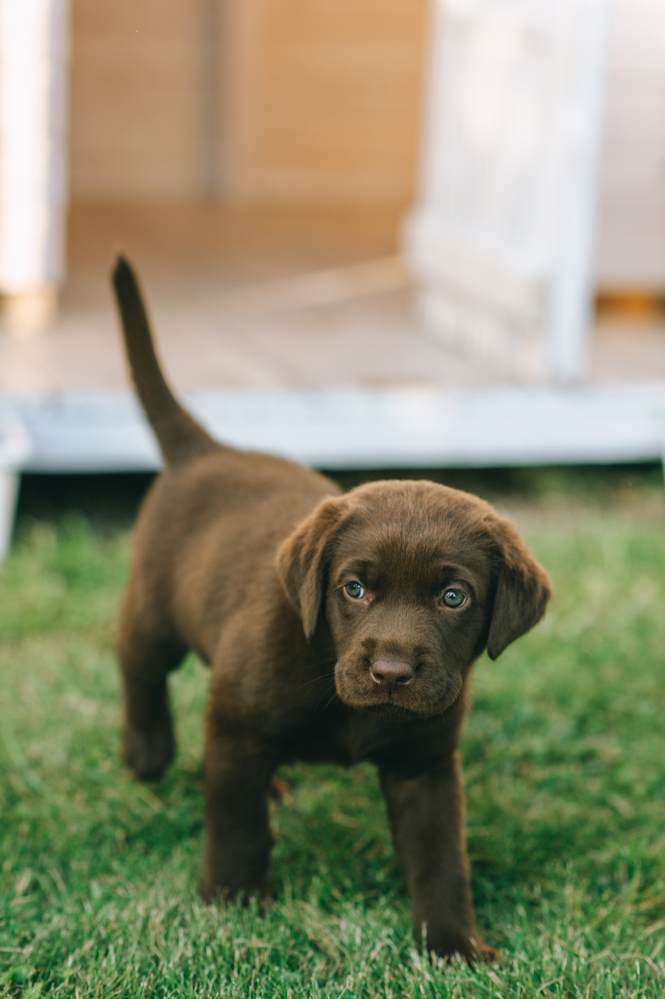
Cow hooves are not a suitable treat for puppies and young dogs, as they may harm their developing teeth. Young dogs are also more prone to bolting their food, which may increase their risk of choking. Do not feed cow hooves to dogs under 1 year of age.
Alternatives to Cow Hooves For Dogs
- Other meaty chews such as tripe sticks may have a higher nutritional value, as they are easier for dogs to digest. However, they are still considered treats, and should not make up more than ten per cent of your dog’s diet.
- The Veterinary Oral Health Council has an accepted list of chews that are safer for your dog’s teeth.
FAQs
Cow hooves have a very low nutritional value, so are not generally good for dogs. However, some dogs may enjoy them as a treat.
Cow hooves are not completely safe for dogs. The risks of feeding cow hooves include damage to the teeth, choking, and blockage in the intestines.
Plain cow hooves do not have a strong flavour, so some dogs will not like them. However, some cow hooves are filled with a meaty paste, which many dogs enjoy.
Cow hooves should only be given to dogs as an occasional treat. Avoid feeding them more than once a week, and make sure that they do not make up more than ten per cent of your dog’s food in a day.
Cow hooves are made from tough keratin, meaning they tend to last longer than some other chews. Dogs may be able to enjoy them for several days.
Yes, cow hooves can cause a blockage in the stomach or intestines of dogs. This is particularly likely if they are not well chewed before being swallowed.
Cow hooves can have a beefy smell to them that some people may find unpleasant, especially once a dog has started chewing on them.
Yes – like any treat, cow hooves can cause diarrhoea in dogs. This is especially likely if your dog has a sensitive stomach, or if they have never had cow hooves before.
Cow hooves are a by-product of the meat industry, meaning that they are not widely used to make food or other products for humans. Some of the leftover hooves are therefore used to create dog food and treats.



